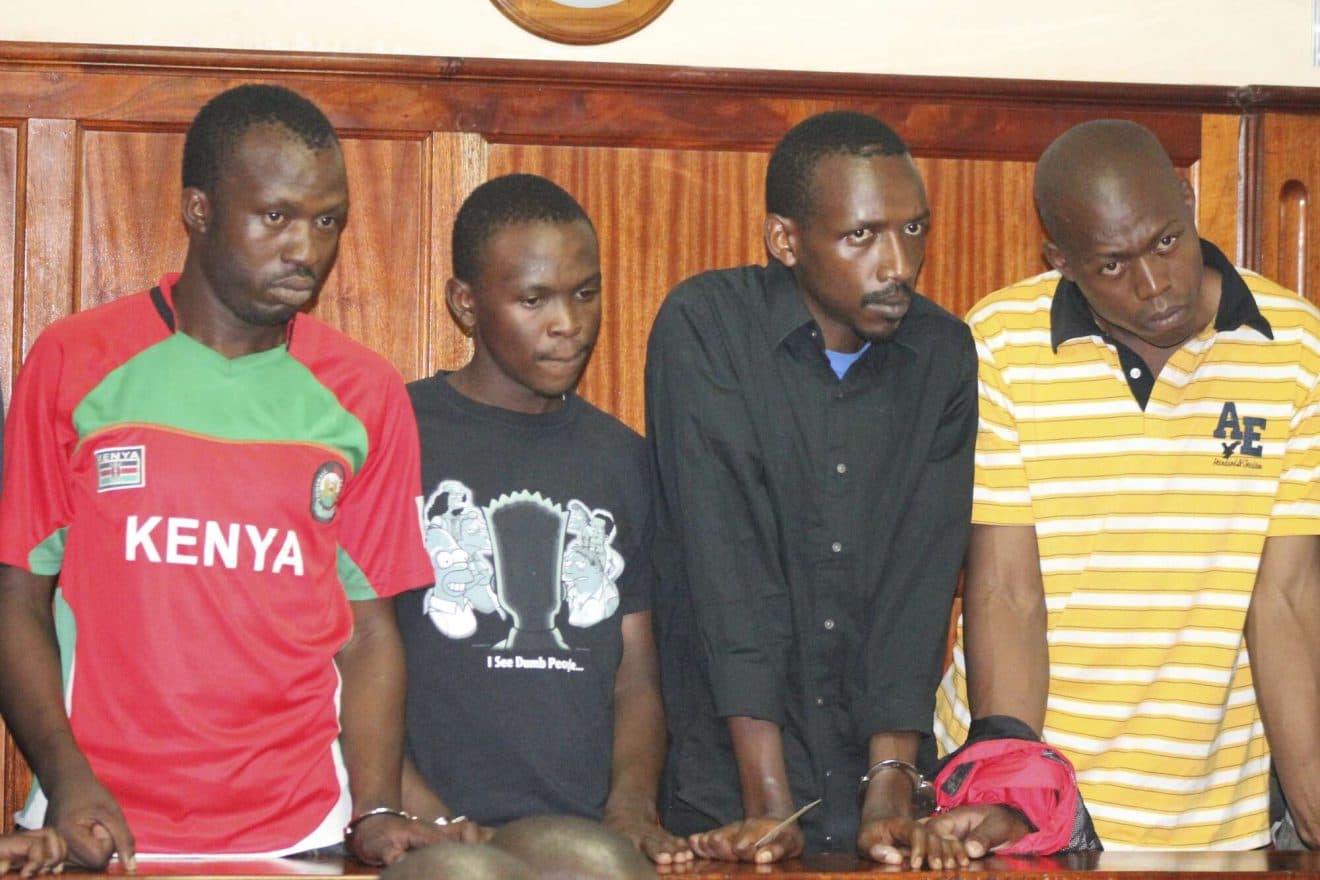We're loading the full news article for you. This includes the article content, images, author information, and related articles.
Nairobi, Kenya – The High Court has acquitted three out of seven suspects in the murder of the former Kabete Member of Parliament (MP) George Mukuru Muchai, who was shot dead on the night of February 6–7, 2015, along Kenyatta Avenue in Nairobi County.

Nairobi, Kenya — September 25, 2025
The High Court in Nairobi has acquitted three of seven suspects charged with the 2015 killing of former Kabete MP George Muchai, ruling that evidence against them was insufficient to sustain a murder conviction. Meanwhile, four others will proceed to the defence stage after the court found a prima facie case against them.
Justice Kanyi Kimondo delivered the judgment, stating that the prosecution failed to show reliable proof that the 5th, 6th, and 7th accused (Jane Wanjiru Kamau aka Shiro; Margaret Njeri Wachiuri; and Simon Wambugu Gichamba) participated in or planned the killings.
The court emphasized that malice aforethought was not sufficiently proven for those acquitted, explaining that the evidence did not link them credibly to the fatal shootings.
For the remaining four accused — Eric Mungera Isabwa (“Chairman”), Raphael Kimani Gachii (“Kim Butcher”), Mustafa Kimani Anyoni (“Musto”), and Stephen Astiva Lipopo (“Chokore”) — the court found that the prosecution presented sufficient evidence to warrant that they defend themselves.
A defence hearing has been scheduled for October 22, 2025, during which the four must respond to the evidence presented by the State.
George Muchai, elected MP for Kabete Constituency in 2013, was fatally shot in a targeted attack on February 6–7, 2015, along Kenyatta Avenue in Nairobi.
He was returning from a family dinner when his car was rammed, and gunmen emerged to open fire, killing Muchai, his two police bodyguards, and his driver. A briefcase and the bodyguards’ weapons were stolen.
Over the years, the case has involved multiple legal twists, including challenges to parallel robbery-with-violencecharges and constitutional debates over some charges’ validity.
In the prosecution’s case, 37 witnesses testified, and evidence included a taxi driver’s testimony, forensic analysis, and ballistic reports.
Under Kenya’s Penal Code, murder cases must be proved beyond reasonable doubt, including intent (malice aforethought).
The court’s decision to acquit three accused rests on the principle that if the evidence is weak or speculative, acquittal must follow — especially when an accused opts to remain silent.
For those ordered to defend themselves, it means the court has accepted that there is a credible case to answer, so the burden shifts to them to refute or explain the evidence.
There is no immediate public statement from the acquitted individuals or their defense teams as of press time.
The Director of Public Prosecutions (DPP) had pushed for accountability in the murder of a sitting MP, underscoring the national significance of prosecuting politically sensitive crimes.
Legal observers note that the ruling underscores the high evidential bar in criminal prosecutions, and warns against overcharging weak links in complex cases.
|
Metric / Fact |
Value / Detail |
|---|---|
|
Total suspects charged |
7 |
|
Acquitted |
3 (Jane Kamau, Margaret Wachiuri, Simon Gichamba) |
|
Proceeding to defence |
4 suspects |
|
Number of witnesses in prosecution’s case |
37 |
|
Next court date |
October 22, 2025 |
Risks & Challenges
The acquittals may provoke public criticism that justice is uneven, especially in politically sensitive cases.
The remaining trial faces intense scrutiny: any procedural missteps or weak defense could lead to further appeals.
Implications
The ruling emphasizes that indictment is not conviction: even in high-profile cases, courts must adhere to standards of proof.
For the justice system, it reaffirms that politically charged prosecutions must be anchored in strong, admissible evidence.
For victims’ families and the public, it may temper expectations, underscoring that some accused will avoid conviction if evidence is lacking.
Whether the acquitted individuals’ names had been conflated or wrongly included in initial charges.
How the defense hearing will address key evidence such as ballistic reports, witness consistency, and mobile data.
Whether any appeals will be made immediately after the defence phase concludes.
If additional persons or conspirators outside these seven may still emerge in investigations.
2015-02-07: Assassination of George Muchai, his driver, and two bodyguards in Nairobi.
2015: Seven suspects charged in the High Court over murder and robbery with violence.
2025-09-25: High Court acquits three suspects, orders four to defend themselves.
2025-10-22: Defence hearing scheduled for the four remaining accused.
The defence submissions on October 22: how strongly they tackle the prosecution’s evidence.
Whether any appeals or new charges follow after the defence phase.
Media and public reaction, especially from civil society, regarding the acquittals.
Possible legislative or prosecutorial reforms triggered by perceived gaps in prosecuting high-profile murder cases.
Keep the conversation in one place—threads here stay linked to the story and in the forums.
Sign in to start a discussion
Start a conversation about this story and keep it linked here.
Other hot threads
E-sports and Gaming Community in Kenya
Active 9 months ago
The Role of Technology in Modern Agriculture (AgriTech)
Active 9 months ago
Popular Recreational Activities Across Counties
Active 9 months ago
Investing in Youth Sports Development Programs
Active 9 months ago